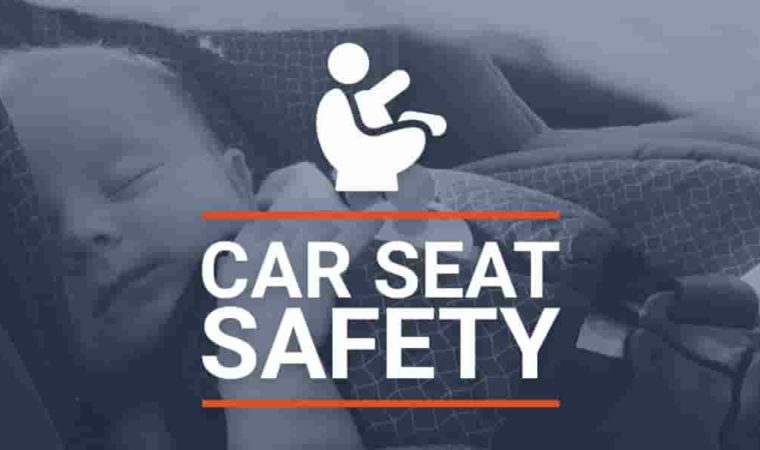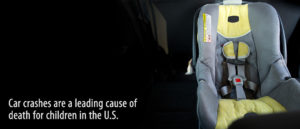It’s National Child Passenger Safety Week, Sept. 20 through 26 and Missouri Coalition for Roadway Safety wants to ensure all caregivers of young children know the importance of buckling children in an appropriate child restraint. Throughout the Northland, fire stations are employing certified technicians to help with car seats. These technicians will install the seat properly while teaching parents how to do it themselves.
“We really insist on it,” Holt Fire Chief Robert Looper said, “The accidents we see (resulting in injured children) are most often caused because the seat is not installed correctly or they are using the wrong seat.”
According to the Missouri Department of Transportation, in 2019, 13 children less than 8 years of age were killed and 52 suffered serious injuries having been in Missouri car accidents. Plus 35% of the children killed or seriously injured were not properly restrained in an appropriate seat.
Smithville firefighter and certified safety seat technician Byron Watkins said information about car seats is easily accessible using the Safe Kids phone app. He said when people bring seats for installation, he checks to make sure there aren’t any recalls by using the app.
The correct seat relies on the child’s measurements, Looper said, a technician will look at their height and weight. With that information, the technician can recommend the best seat for that specific child and can also help educate families when the seat will need changing and what to use at that time.
Watkins said there is a lot of information related to what seat to use and when to change them out.
“Most forward facing seats have a minimum of 22 pounds,” Watkins said. “Those straps need to be tight enough so that you can’t pinch them. The clip should be at arm pit level … It’s not quite winter yet but we also don’t recommend having the child in a winter coat while in the seat. Use a fleece covering and maybe a blanket. Then after they are fastened in, you can drape the coat over them.”
“You probably want to use a forward facing seat until the child reaches about 65 pounds, then you can go with the regular belt,” he continued.
While the regular belt is usable after the child reaches the correct weight, Watkins said they still need a booster seat.
“Make sure the child is sitting in it correctly with knees parallel,” Watkins said. “And that the belt isn’t too far in their neck.”
On the opposite end, Watkins said infants and babies should remain in backward facing seats up to the age of 2, a weight of 22 pounds.
“Sometimes it is just hard for parents to get the tension right,” Smithville Fire Chief Dave Cline said. “When we are installing them, sometimes we need to add more fabric to help even the seat out so that it sits properly. That’s one of the main reasons to have a certified technician help.”
Installations take about 30 minutes Kearney firefighter and paramedic Brett Booth added.
“We try to have two certified technicians on each shift,” Booth continued. “We just ask that they call ahead so we know they are coming. Also during the pandemic, we wear (personal protective equipment) during the installation.”
Looper said the installations are more an educational experience rather than a free service, although it is free.
“Our tech will show how to install the seat,” Looper said. “Then they will take it out and let the owner do it.”
While coronavirus has a lot of people staying home, Looper said some firefighters are getting creative and using virtual platforms to help with installations.
“Some of our guys will use Facetime,” Looper said. “They are able to use their phones to show families virtually.”
Another thing Looper said departments encounter are families who have a difficult time affording the appropriate seat. There are programs targeted at helping those families he said.
“MoDOT and Children’s Mercy Hospital supply us with some seats,” he continued. “But they don’t give us infant seats.”
Those in the community also can donate car seats. Looper said there is a higher need for a few infant baby seats every year. Donated seats must be clean, never having been in an accident, have no recalls and cannot be expired to be accepted.
Those who are seeking a free seat and qualify, determined based on whether they are receiving state aid, can ask for a free seat to be installed when scheduling the installation.
Written by Sean Roberts of the Courier Tribune


















